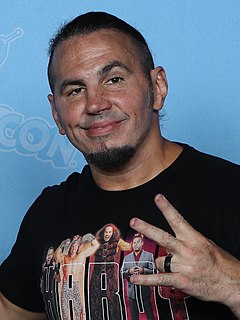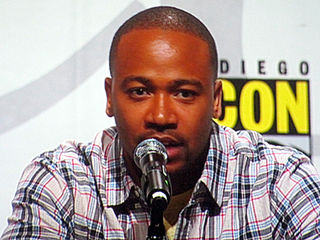A Quote by Matt Hardy
You know that if you come to WWE and want to maintain a certain level of success, you're going to be busy and gone a lot. It's part of the deal.
Related Quotes
Success on a cosmic level completely eludes me. I'm deeply suspicious of things being too good. It's part of my superstition, I think, to generate pain in order to give the illusion of gain. I'm not saying I reject success, but honestly, I don't quite know how to deal with it. It's an old feeling: As soon as you have the thing you've been going after all your life, that reasonable degree of security, you start kicking against it, doubting it.
Establishing and maintaining clarity for yourself and what you want is the starting point for success. Thus, maintaining extraordinary clarity is necessary to achieve extraordinary success. The problem is that most people maintain a mediocre level of clarity, which inevitably leads to a mediocre level of success.
I had come to the point when I realized it was unlikely that my film career was going to move beyond a certain level of role. And I was - because I had graphic instances of it - handicapped by the success of Star Trek. A director would say, 'I don't want Jean-Luc Picard in my movie' - and this was compounded by X-Men as well.
It's very difficult to know exactly what a major audience is going to respond to. 'We know they respond to certain personalities. That has been proven by the success of certain people in television who have gone from show to show and carried an audience with them. Apart from that, it's very hard to say what formula works.
A lot of people in the WWE try to paint themselves as outlaws and rebels and I really honestly believe I'm the only one left. I always do what I want and I never get any flack for it. I don't know if it's because they know they're not gonna win, or it's not worth fighting me over. Plus I don't see what the big deal is about me wearing a Cabana shirt. The guy should be working there, first of all, and it's promoting my friend. I don't see what the big deal is.
Any woman who wishes to be an intellectual, to write non-fiction, to deal with theory, faces a lot of discrimination coming her way and perhaps even self-doubt because there aren't that many who've gone before you. And I think that the most powerful tool we can have is to be clear about our intent. To know what it is we want to do rather than going into institutions thinking that the institution is going to frame for us.

































